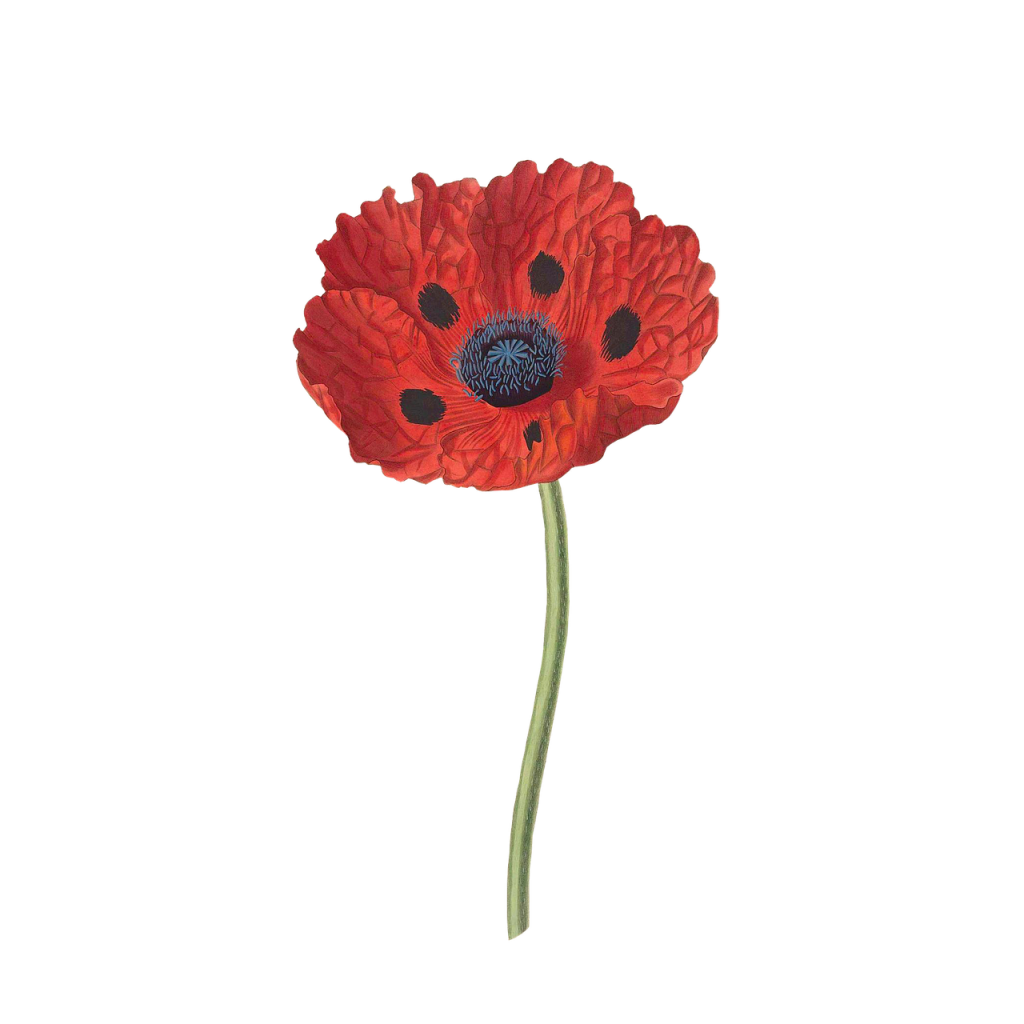 In preparation for the Remembrance Day assembly, Division 3 has been working on a dramatic chorale reading of John McCrae’s poem, In Flanders Fields.
In preparation for the Remembrance Day assembly, Division 3 has been working on a dramatic chorale reading of John McCrae’s poem, In Flanders Fields.
Chorale reading requires all performers to develop a “stage voice” where they must speak clearly and audibly. This process also provides an opportunity for some creativity with how we share the words. We discussed how to vary volume, pitch, tone, and speed, and how we could emphasize certain parts of the poem by having everyone, a small group, or just one performer speaking at a time.
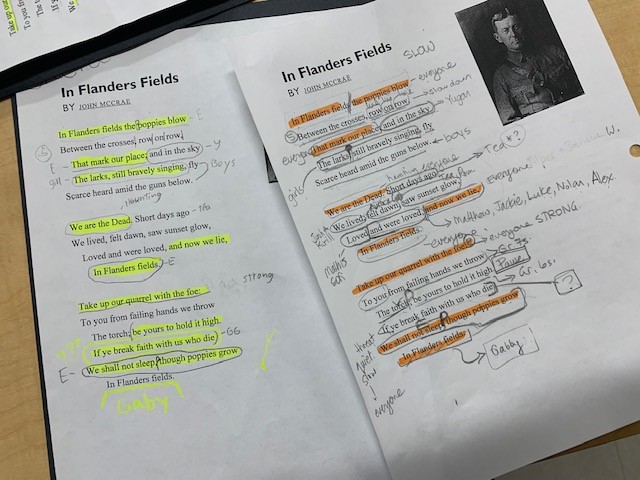
Performer and director notes can be messy! Taking notes while reviewing and practicing a script helps us understand our cues and reminds us where we need to emphasize or pause. When we rehearse in an intentional way, we can run on auto-pilot for the performance!
To start off, we worked in three groups: each group examining one verse, and deciding on how it could be read for maximum effect using some various chorale reading strategies. Each small group shared their “rough” cut, and the rest of the students discussed what was most effective.
Then, as a whole group, we took ideas from each small working group and started developing our whole-class performance. After many rehearsals and feedback, we are ready to perform! Practice makes progress, and while we may not be “perfect,” Division 3 should be very proud of the work they’ve put in to perform this powerful piece.


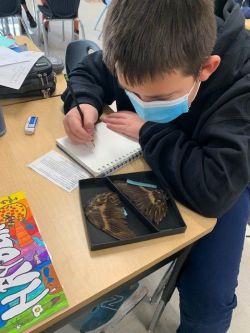
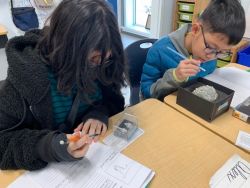
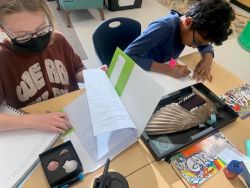
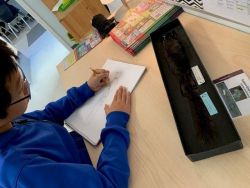
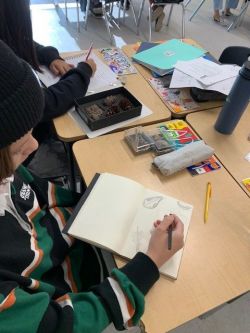















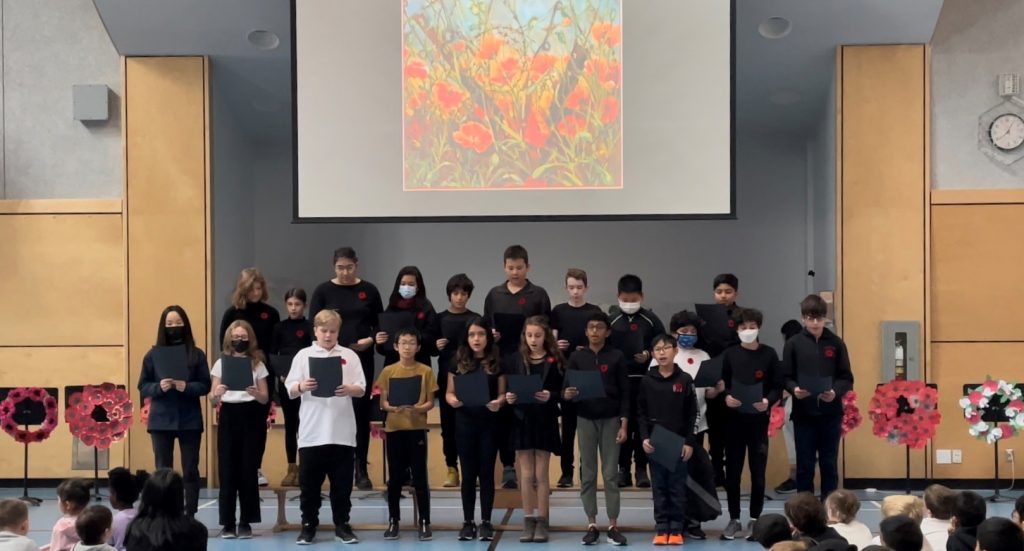
 In preparation for the Remembrance Day assembly, Division 3 has been working on a dramatic chorale reading of John McCrae’s poem, In Flanders Fields.
In preparation for the Remembrance Day assembly, Division 3 has been working on a dramatic chorale reading of John McCrae’s poem, In Flanders Fields.